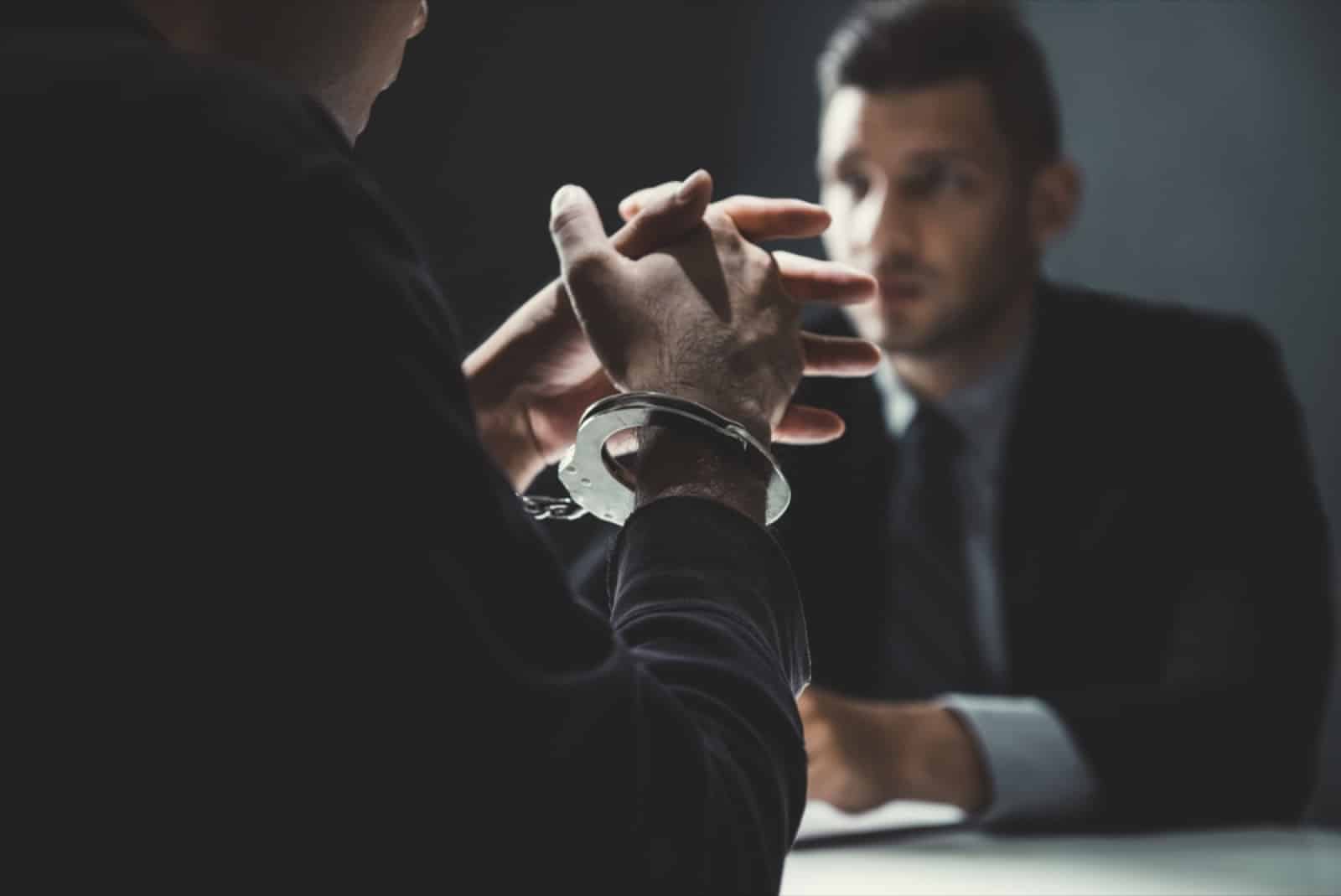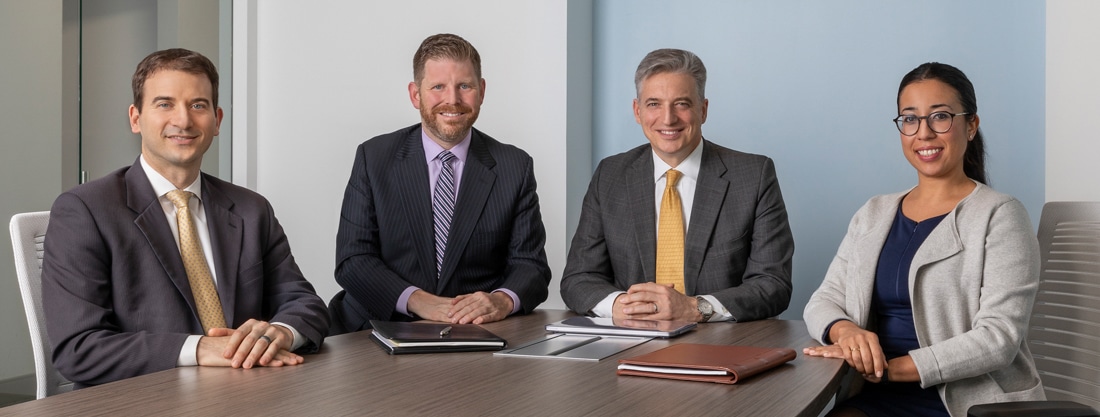MARYLAND LAW OF CONFESSIONS EXPERT
Author and defense attorney, Andrew Jezic, is the preeminent expert on confession law in Maryland. He co-wrote the 1750-page treatise, Maryland Law of Confessions, and regularly lectures to lawyers and judges around the state. The book is now in its 20th edition and has been cited by reported appellate decisions 16 times.
After an individual confesses his/her guilt, other evidence can pale in comparison. Still, even after a clear confession, the case’s outcome remains open — confessions that are unusable in court do occur. The Innocence Project, a nonprofit dedicated to exonerating wrongfully convicted persons, found that 23% of the cases overturned through DNA evidence included an erroneous confession.
Evidence that a confession was extracted under dubious circumstances can radically change a defendant's future. But the law of confessions is rarely simple to apply. Attorneys and their clients can both benefit greatly from specialized knowledge of the intricacies of confession laws.

The Complexity Inherent in the Law of Confessions
There is no singular law of confessions, but rather a body of laws that are constantly being refined through their application in the courts. Together, they protect American people from the injustice of an improperly obtained statement of guilt.
Confession law broadly covers several topics. It covers appropriate conduct for police who are gathering information about a crime. The laws dictate what information or personal attributes a suspect needs to have for their statements to be assumed voluntary.
People of the United States are promised the following in the Bill of Rights:
- The Fifth Amendment guarantees due process in the justice system and the right to silence.
- The Sixth Amendment includes the right to a lawyer during many interrogations.
When these rights are withheld, any resulting confession lies on shaky legal ground.
In the famous case of Miranda v. Arizona in 1966, the Supreme Court brought a lot of clarity to confession rights.
Yet, since that milestone case on police custody, the Supreme Court has revisited aspects of confession law over 90 times. Confessions are, without a doubt, a legally complicated issue.
It is critically important to hire an attorney who knows confession law inside and out. Mr. Jezic is that expert. He is the co-author of the leading book on confession law for lawyers and judges in Maryland, Maryland Law of Confessions, a 1750-page book released by the nation’s premier legal publishing company.
Advocating for Defendants’ Rights
A confession is given considerable weight in the legal system. Judges and juries take these statements as powerful indicators of guilt, even if the statement is later contradicted or recanted. Thus, a lawyer’s ability to throw out invalid confessions is an essential tool when advocating for clients.
For any confession to hold weight in a court of law, it must be voluntary. This is the crux of confession law. When a client lacks information about his rights or is overly influenced by certain coercive circumstances, his admission might not be considered to be truly voluntary. Untold hours of legal debate have examined the exact definition of voluntariness and how this concept applies to particular cases.
A confession could be deemed unusable against the accused for many reasons. The possibilities range from the relatively straightforward to the ambiguous. A confession is immediately suspect if it directly follows violence at the hands of arresting officers. It’s harder to pinpoint the legal status of a long, exhausting interrogation or the implicit threat of violence.
Many situations can lead to false confessions. These reasons include:
- To escape threatening or inhumane circumstances
- In response to promises of a positive outcome
- Temporary or ongoing cognitive inability to understand the situation
- To obscure wrongdoing in another matter
- For fame and infamy (most often associated with high-profile cases)
Whatever the reason for the confession, a defense attorney will want to prove one thing: at least one aspect of the interrogation broke legal protocol.
It is critically important to hire an attorney who knows confession law inside and out. Mr. Jezic is that expert. He is the co-author of the leading book on confession law for lawyers and judges in Maryland, Maryland Law of Confessions, a 1750-page book released by the nation’s premier legal publishing company.

The Price of a False Confession
At times, a client will tell his lawyer that his confession was coerced or incorrect. In other cases, it may be the lawyer who discovers that a statement was improperly obtained.
It is not possible to count how many individuals may have been convicted of a crime they did not commit due to a false or wrongly obtained confession. However, exoneration data gives one window into these sobering situations.
In a comprehensive summary that dates back to 1989, The National Registry of Exonerations lists over 300 cases of exoneration where false confession was identified as a factor. The same research shows how false confessions are associated with other legal disadvantages. The people whose lives have been harmed by a wrongful conviction are disproportionately young and the majority belong to racial minorities.

Overturning a Client’s Confession
A defense attorney will want to resolve his client’s case long before exoneration becomes the only option. When a case first begins or during an appeal, confessions can be challenged like other pieces of evidence. Unfortunately, the proper strategy for casting doubt on a confession’s legality may appear difficult to determine.
Just a few of the questions a lawyer might need to answer for their case include:
- Did my client have sufficient understanding of the confession they signed?
- Did the length of their interrogation cross a legal line?
- Was my client interrogated without a lawyer present, or was the statement of guilt made at a time where the right to legal assistance didn’t apply?
- Confessions similar to my client’s are only overturned in some instances ― how do I make sure my client’s case turns out well?
To untangle confession laws as they apply to a particular case, it pays to consult with an expert. This third party can offer detailed knowledge both about the law as it is written and any precedents set by similar cases. Because confession law is so nuanced, these examples are often necessary to convince a judge of a confession’s invalidity.
Confession Law Guidance from a Nationally Regarded Expert

Even attorneys with years of experience in criminal defense may find themselves in an unfamiliar situation when they’re navigating the complexities and nuances of fighting a false confession. For a case where your defendant’s confession is key, consult with eminent confession law expert, Andrew Jezic.
Mr. Jezic brings immense experience to the table as a co-author of Maryland Law of Confessions. His 1,750-page treatise is considered a valuable and thorough examination of American confession laws and is relied upon for reference by both attorneys and courts. Across its 20 editions, Maryland Law of Confessions has been cited or quoted 16 times by Maryland’s highest and intermediate appellate courts.
One such reference includes that from March 25, 2013, from In re: Darryl P., page 32, written by the Honorable Charles E. Moylan, Jr., judge on the Court of Special Appeals of Maryland, and author of several leading criminal law books in Maryland. In it, Moyland Jr. said, ""The leading academic authority on confession law in Maryland is Jezic, Molony, Nolan and Woodward, Maryland Law of Confessions."
Written for prosecutors, defense counsel, and police detectives, this work also covers Maryland appellate courts unique standards regarding involuntariness, the right to silence, and the right to counsel. It also:
- Discusses custody, waiver, invocation, re-interrogation, and surreptitious questioning.
- Outlines underutilized rules pertaining to the Sixth Amendment.
- Reviews the right to silence not directly related to interrogations.
- Discusses ethical considerations for prosecutors.
- Contains practice tips and checklists.
- Provides a thorough discussion of the implications of the Williams opinion on prompt presentment.
If you or your client is struggling with a confession, Mr. Jezic offers individualized consultations anywhere in the United States. Work with him to identify the best possible options for your client. When confession law comes into play, Mr. Jezic can ensure that the case achieves a positive outcome.
Testimonials
Email us
inquiries@jezicfirm.com
How we can help
Our experienced Maryland criminal defense, immigration, personal injury and all of our lawyers will help you overcome any challenge you have with legal issues. You can be confident with the experienced team at Jezic & Moyse on your side.
Call us 24/7 - 7 Days a week
Or fill out the form to receive a free and confidential consultation.


